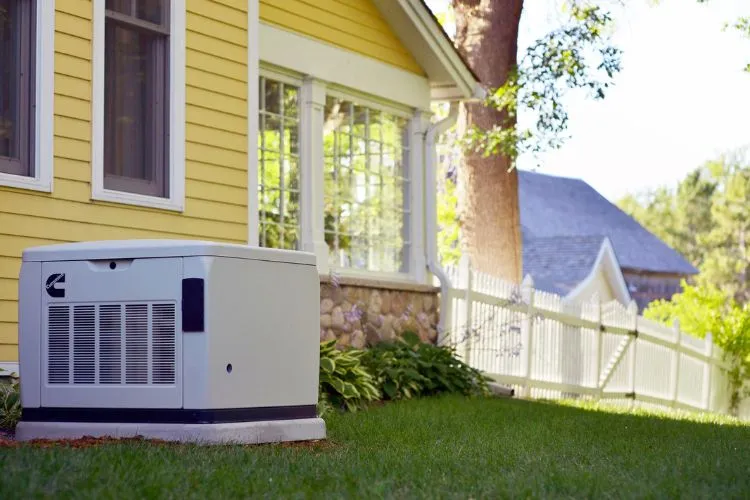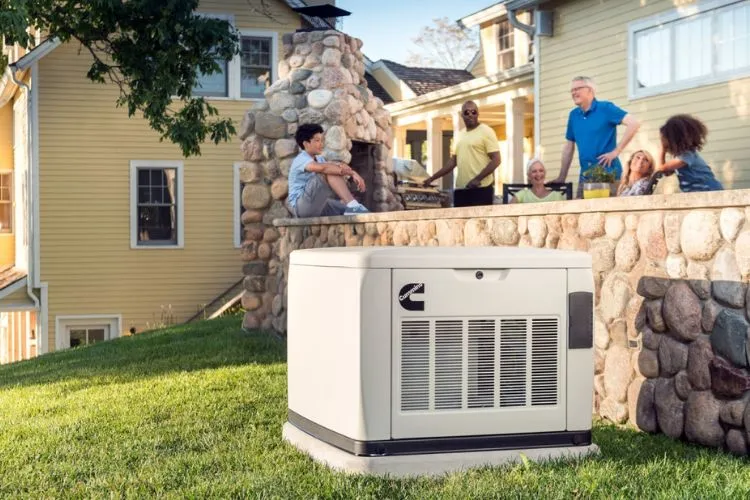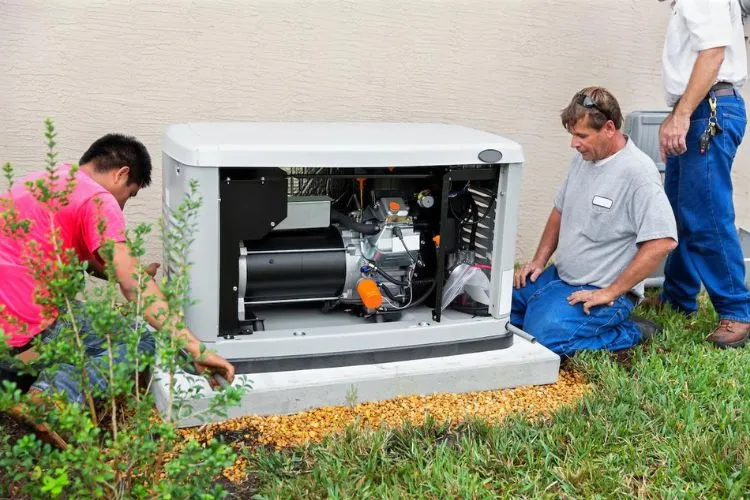In the quiet aftermath of a power cut, when the world outside seems oddly still, the significance of electricity in our day-to-day lives becomes undeniably clear.
This is when the concept of a home emergency generator transcends from a mere convenience to an absolute necessity.
Let’s learn what are home emergency generators, understanding their function, value, and how to choose the right one for your home.

What Are Home Emergency Generators?
What Constitutes a Home Emergency Generator?
A home emergency generator acts as a reliable source of power during electric outages. Delineating into two primary types—portable and standby—these generators cater to a broad spectrum of needs.
Portable generators are mobile, powering essential devices, while standby generators automatically kick in during power outages, offering a comprehensive solution for your home’s power needs.
The Operational Mechanics Behind Home Emergency Generators
These generators ingeniously convert mechanical into electrical energy. Portable variants typically operate on gasoline or diesel, whereas standby ones generally harness propane or natural gas.
An automatic transfer switch is crucial in standby generators, detecting power loss, activating the generator, and hence ensuring continuity of power.
Critical Features to Consider
When pondering over a generator, understanding the power output necessary to keep your essentials running is imperative. Equally important is the choice of fuel, as it influences both operational costs and storage safety.
The Invaluable Role of Home Emergency Generators
The Why Behind Needing One
Beyond mere convenience, a generator provides essential services during power outages—food preservation, temperature control, and lighting, to name a few. It upholds a semblance of normalcy, ensuring that life can go on, relatively unaffected.
Safety and Operation: A Priority
Owning a generator comes with the inherent responsibility of ensuring it’s used safely. Proper ventilation is non-negotiable to prevent carbon monoxide poisoning, and timely maintenance ensures readiness for when the need arises.
Eco-Conscious Considerations
While generators do have an environmental impact due to their emissions, opting for fuel-efficient models and adhering to responsible usage practices can mitigate some of these impacts.
Selecting the Perfect Home Emergency Generator

Essential Factors to Consider
Before making a decision, it’s essential to calculate your power needs, consider the available installation space, and ascertain fuel availability.
Navigating the Choice Between Portable and Standby
Your specific needs and circumstances will dictate whether a portable or standby generator is right for you. Portable units offer flexibility and cost savings, while standby generators provide unparalleled convenience and power at a higher cost.
Emphasizing Installation and Maintenance
The complexity of standby generators necessitates professional installation to ensure adherence to safety and local regulations. Regular maintenance—typically bi-annual—is crucial for long-term reliability.
The Financial Implications of Home Emergency Generators
Weighing the Initial Cost Against Long-term Rewards
Though purchasing a generator might seem like a hefty initial investment, its long-term benefits—protection against food spoilage, pipe damage during winter, and its potential to enhance your home’s resale value—make it worthwhile.
Understanding Fuel Efficiency and Operational Expenses
Operational costs can vary widely among different models, emphasizing the need to select a fuel-efficient generator. Keeping the generator well-maintained according to the manufacturer’s guidelines ensures optimal fuel usage and longevity.
You may also find useful: What Generator Oil Should I Use?
Legal and Safety Regulations

Safety standards and legal mandates are vital considerations when installing a home emergency generator.
Homeowners must adhere to National Fire Protection Association codes and local building ordinances, ensuring proper placement and ventilation to mitigate carbon monoxide risks.
Moreover, electrical installations often require a licensed professional to comply with local codes, and in many locations, securing permits is a prerequisite before any work begins. These regulations help ensure that generator installation and operation are both safe and legally sound.
Case Studies: Real-Life Generator Impact
Emergency generators have proven to be invaluable in various crises, providing crucial support to households during unexpected power outages.
For instance, in a severe winter storm in Texas, a family was able to keep their home heated and their medical devices operational thanks to their standby generator, averting potential life-threatening situations.
Another case involved a couple in Florida who managed to preserve perishable business inventory during a hurricane-induced outage, saving thousands of dollars.
These real-life examples underscore the profound impact that emergency generators can have, not just in maintaining comfort but in safeguarding lives and livelihoods during critical times.
Frequently Asked Questions (FAQs)
Can I Undertake the Installation of a Standby Generator Myself?
It’s highly recommended to engage a professional for the installation to ensure safety and compliance with local regulations.
For How Long Can a Home Emergency Generator Run Without Interruption?
The operational duration varies significantly between models and depends on the fuel supply. It’s best to consult your generator’s manual for specifics.
How Do I Determine the Adequate Size for My Home’s Emergency Generator?
List down the wattage of all essential appliances and add them up. This aggregate will give you an estimate of the power requirement.
What Is the Recommended Frequency for Generator Maintenance?
Manufacturers typically recommend bi-annual maintenance, though this can vary depending on usage and model specifics.
Are There Legal Considerations or Permits Required for Generator Installation?
Yes, local codes may necessitate permits and dictate installation specifics, making it crucial to consult local authorities.
Is It Possible for a Home Emergency Generator to Power My Entire House?
Standby generators can often power a whole house. Portable generators, however, might necessitate prioritizing specific appliances or areas due to their limited capacity.
Conclusion:
Home emergency generators stand as a bulwark against the disruptions caused by power outages, ensuring that your home remains a safe and comfortable haven even in the worst conditions.
The market offers a diverse array of options suited to different needs and budgets, making it essential to thoroughly assess your specific requirements before making a decision.
In the end, investing in a home emergency generator is investing in peace of mind and security for yourself and your loved ones.
